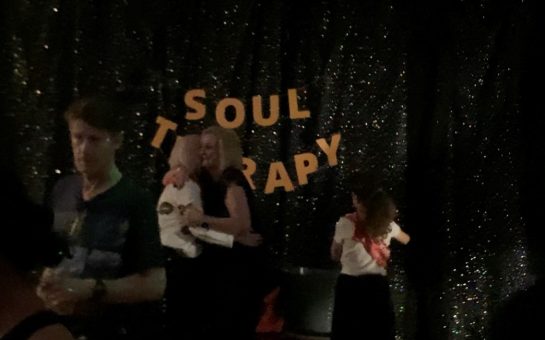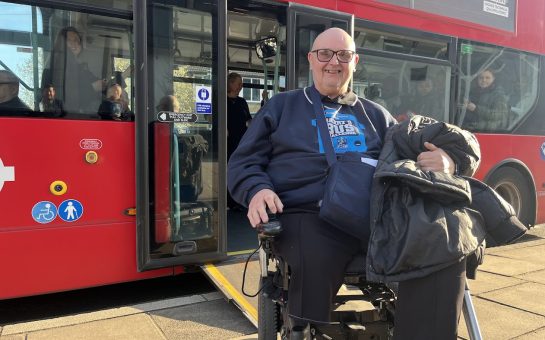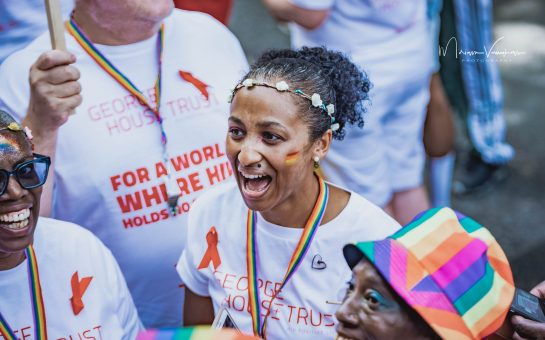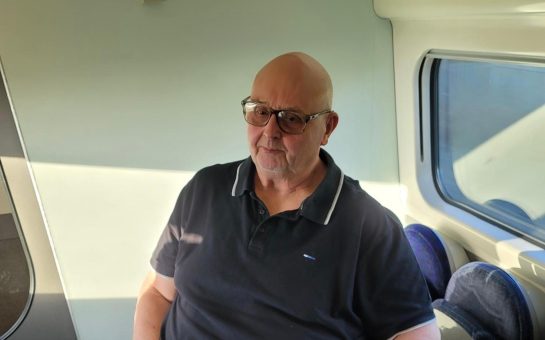A turn-of-the-season September morning saw a group of people on Heaton Park surrounded by fluttering banners.
The banners bore of Beat, a charity dedicated to helping people suffering from eating disorders.
The event was a ‘Walk and Talk’, designed to bring people with eating disorders, and their friends and family, together to share their experiences.
The purpose of the event, and a lot of Beat’s campaigning and research, was to challenge the stigma and secrecy surrounding eating disorders.
Unfortunately, stigma and eating orders go hand in hand, thanks to societal pressure.
Eating disorders are attended by a cloud of misinformation about who suffers from them and what the symptoms and effects are.
This can leave sufferers feeling isolated and unwilling to seek treatment.
Andrea, a community fundraiser at Beat, described the necessity of understanding eating disorders as a serious mental illness rather than personal pathology.
“We know that on average people wait a year between becoming ill and recognising they have an eating disorder.
“There’s so much work to be done to make sure people are aware of the symptoms.
“People are suffering for a long time in silence, they have real feelings of shame and guilt…feeling like they have this personal problem that they should be solving.
“Actually, it is a serious mental illness, that needs specialist medical treatment.”
GOOGLING EATING DISORDERS
Cerys, who has suffered with an eating disorder for the last three years, spoke very candidly about the causal link between secrecy and eating disorders.
“Secrecy, especially with eating disorders, it’s something that it thrives on so if you are more secretive then you’re less likely to seek out help.
“It’s kind of like a spiral, the less you talk about it the worse it gets.”
Cerys’ father Eddie was equally frank in regards to education dispersing the myths around eating disorders.
“There’s the reluctance to talk about mental health issues, I don’t think there is in my generation a large amount of education around mental health.
“I think therefore the stigma comes from a lack of knowledge. So, discourse, walking and talking, conversations, communication, is all really vital to starting get the message out there and starting to understand how mental health affects people and how corrosive things like eating disorders can actually be.”
WOW! How amazing was Walk & Talk Manchester? So many honest conversations and so much support for those battling mental illness. Thank you all for changing the way we talk about eating disorders. Huge thanks to Eddie Middleton and Ellen Jane Macpherson for the fab pics pic.twitter.com/gptXRYdxkG
— Beat (@beatED) September 24, 2018
Cerys identified Beat as a good resource for understanding her symptoms, recounting how, at the age of 14, she had taken to Google in an effort to understand her illness.
She spoke about the reassuring nature of services and information provided by Beat.
“I think it’s just something to turn to if you are feeling a bit more anxious, if you are just wanting that extra bit of support just to make yourself feel more validated.
“Seek out help seek out people like yourself and kind of just connect in a way that maybe you can’t just get offered through traditional treatments.”
In addition to communication, Cerys valued the way the walk and talk broke the isolation of eating disorders, by bringing people with common problems together.
“I think it’s just a lot about you’re not alone, you’re not the only one going through this: there’s people with similar problems.
“It’s lovely I’ve never really met anyone else in person going through a similar problem. Looking around, a lot of people look like just normal happy people which is lovely to see as well, because a lot of misconceptions about eating disorders is that everyone looks a certain way.”
‘NOT JUST A TEENAGE GIRLS’ DISEASE’
A sense of belonging through identification was echoed by Simon, a 35-year-old gay man who had struggled with bulimia since he was 20.
He identified the homogenisation and mischaracterisation of eating disorders as an inhibiting factor to his recovery.
“I always think, and I think people still think, it’s a teenage girls disease, it’s purely about body image.
“Being from the LGBT community there is more of a pressure on body image: 42% of men who disclose having an eating disorder identify as gay so it’s a lot more prevalent.
“I felt like I was just stereotypical. I felt like I would be very stereotyped if I came out as having an eating disorder.”
Like Cerys, Simon appreciated the way the Walk and Talk brought a diverse group together and dispelled the homogenising myths surrounding eating disorders.
“I think events like this, it’s really important that as many different backgrounds are represented so actually people can identify with themselves.
“I spent a long time thinking I was the only gay man with an eating disorder and actually it’s not like that at all.
“Because, even though certain marginalised groups are more susceptible to eating disorders, actually they don’t discriminate against anyone.”
I was completely caught up in Anorexia’s net of deception: something else must be to blame https://t.co/KUFVQ3tJJm pic.twitter.com/6X6ydHegOu
— Beat (@beatED) September 27, 2018
Simon was very clear about the increase in information available on understanding and treating eating disorders and how this had helped him.
He described how, 15 years ago, internet search results produced sites featuring tips on how to do be good at having an eating disorder. These days though the results were more positive – specifically in relation to men getting eating disorders too.
Simon and Cerys were so articulate at discussing their experiences it’s difficult to imagine Cerys googling what her symptoms meant on her own, or Simon struggling for 15 years before going into recovery.
It’s clear that the openness and information provided and fostered by organisations like Beat, has helped them not only to recover but to thrive and help others.
Simon told MM about other people reaching out to him about their experiences with eating disorders because of his frankness, and Cerys positively told us how she wanted to bring walk and talks to her native Scotland.
It’s easy to see, in their drive and eloquence, the transformative nature of communication and community and how this can be used to myth bust, improving the quality of life of sufferers everywhere.
Image courtesy of Beat via Twitter, with thanks.



